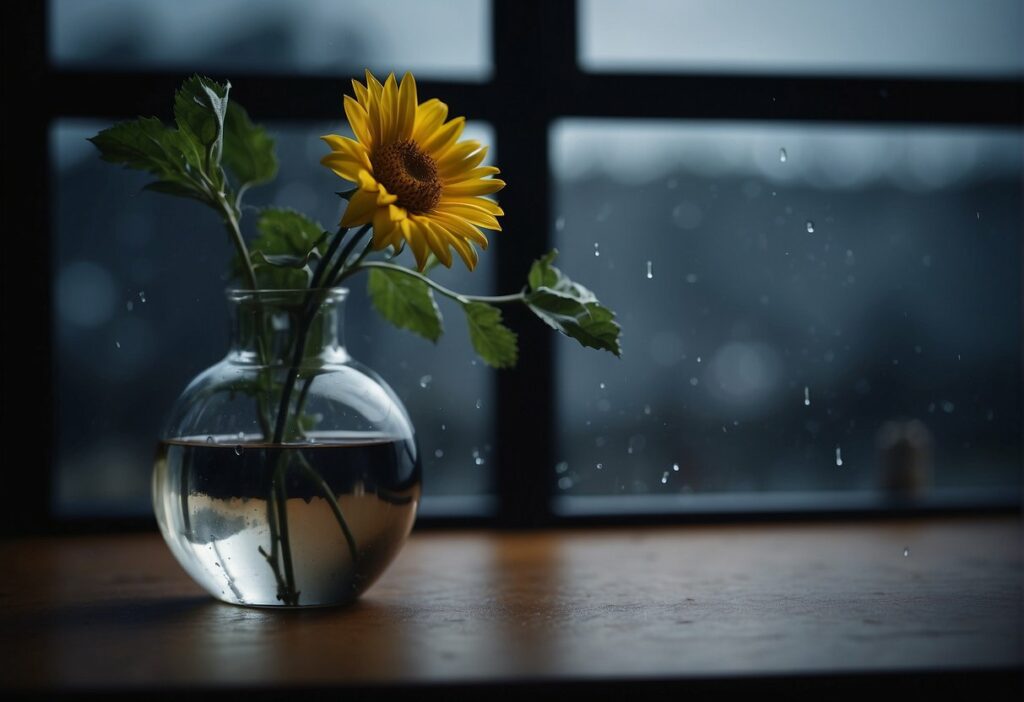What Are Some Signs I’m in a Toxic Relationship: Spotting Red Flags and Taking Action

Recognizing the toxicity in a relationship can be challenging. Often, it’s not until we feel a persistent sense of unease or unhappiness that we begin to question the health of our connection with our partner.
A toxic relationship can drain you emotionally. It is often characterized by a pattern of destructive behaviors and attitudes from one or both partners. These include consistent negativity, feelings of insecurity, and a loss of self-identity.
If you find yourself frequently questioning your worth, feeling manipulated, or experiencing a lack of support and understanding from your partner, these may be signs of a toxic relationship.
It’s not uncommon to attempt rationalization or to cling to the happier memories, but acknowledging these red flags is crucial. Taking action to address these issues is essential for your well-being.
This may involve open communication with your partner, setting boundaries, seeking support from friends, family, or a professional, and in some cases, considering the end of the relationship.
Key Takeaways
- Identifying unhealthy patterns is the first step towards addressing relationship toxicity.
- Open dialogue and setting boundaries are crucial responses to toxic dynamics.
- Personal well-being should always be prioritized when dealing with a toxic relationship.
Recognizing the Signs

When identifying toxic elements in a relationship, I look for patterns of behavior that undermine my sense of well-being.
Lack of Support
In a healthy relationship, I expect a solid foundation of mutual support. If I’m in a relationship where my achievements are met with indifference or my pursuits are undermined, that’s a red flag. My partner should cheer for my successes, not belittle them.
Disrespectful Behavior
Respect is non-negotiable. If I’m regularly exposed to insults or belittling comments, either privately or in front of others, that’s disrespectful behavior. Such actions chip away at my self-esteem and should not be part of my interpersonal dynamics.
Control and Isolation
Control and isolation manifest when my autonomy is restricted. If someone consistently dictates who I can see, where I can go, or limits my access to money or transportation, they’re isolating me from friends and family, which is a subtle form of manipulation.
Frequent Criticism
While constructive feedback can be beneficial, there’s a clear boundary. If I’m constantly the target of harsh remarks or nitpicking about my choices, appearance, or ideas, it’s an indication of a toxic environment. My strengths and contributions should be acknowledged, not always critiqued.
Walking on Eggshells
Lastly, if I find myself perpetually cautious about what I say or do to avoid a negative reaction from my partner, that means I’m walking on eggshells. This persistent anxiety is harmful. I should feel comfortable and safe to express my thoughts and feelings.
Responding to a Toxic Relationship

When I recognize I’m in a toxic relationship, my response is crucial to safeguarding my well-being. It involves setting clear boundaries, seeking support, prioritizing self-care, and preparing to leave if needed.
Setting Boundaries
I learned to be clear about my limits. Boundaries are essential for maintaining my mental health. I make sure to:
- Communicate my needs firmly and respectfully.
- Say no to demands that compromise my integrity.
- Limit contact if my boundaries are repeatedly ignored.
Seeking Support
I don’t go through this alone. I seek support from:
- Close friends who provide an understanding ear.
- Professional counselors who offer objective advice.
- Support groups where I can connect with others in similar situations.
Self-Care and Prioritization
Self-care is my tool for resilience; it puts my needs first. My self-care routine includes:
- Exercises, like yoga or jogging, for stress relief.
- Hobbies that bring me joy and relaxation.
- Adequate sleep and a balanced diet to maintain my energy levels.
Planning an Exit Strategy
If the relationship’s toxicity escalates, I have an exit strategy in place. This includes:
- Saving money in a personal account for financial independence.
- Identifying a safe place I can go, whether it’s a friend’s house or a shelter.
- Consulting with professionals about legal steps if necessary.
Understanding the Impact

In a toxic relationship, I may notice the toll it takes on my well-being and future. The effects can be deep and far-reaching.
Emotional Effects
I might experience anxiety, feel constantly on edge, or sink into bouts of depression. My self-esteem could take a hit, manifesting in thoughts that I’m not good enough or unworthy of better treatment. It’s not uncommon for me to feel:
- Drained: A sense that my emotional energy is constantly depleted.
- Confused: Difficulty in trusting my own feelings and memories.
- Isolated: An increasing sense that I’m alone in my struggles.
Long-Term Consequences
Being in a toxic relationship can alter my future paths in unsettling ways:
- Relationships: I may struggle to build trust with new people or form healthy relationships later on.
- Health: Prolonged stress may leave me with long-lasting health issues like hypertension or insomnia.
- Life Satisfaction: I might find my overall happiness and life satisfaction severely diminished.
